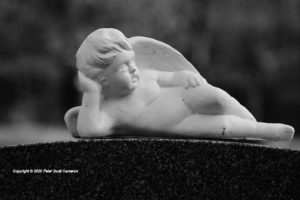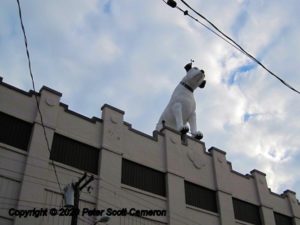I have lived a long time. As a result, I have learned some things: not a lot, I admit, but a few useful things.
Out of this learning I have identified a handful of important laws that operate in life. Over time in this blog, I will share these with you, starting with Cameron’s Second Law today. Be sure to return here to get the other laws. You will not get these anywhere else, such as in a book or by divine revelation.
The reason that I am starting with the Second Law is because I don’t have the First Law formulated yet, although I am working on it. But when I get it, it will be terrific. It will be all-encompassing and will explain, basically, everything. Stay tuned. In any case, Cameron’s Second Law recognizes both a great spiritual Buddhist principle, along with a common experience that we have all had. You will recognize this great truth immediately.
Cameron’s Second Law states: Good things go on too long.
I will tell you how I discovered – no, that is the wrong word for this law – the correct word is realized. I realized this law during a performance of Gluck’s Paride ed Elena, which is a five-act opera that can run on for three hours and fifteen minutes.
Despite the robust presentation of Anna Netrebko and others, I do not ordinarily like recorded opera much, but I love live performances. These have everything: love, sex, jealousy, murder, intrigue, betrayal, skullduggery, lust and bloodlust, dastardliness, and nobility. It is like a British television murder-mystery on steroids, but with costumes and unbelievable singing.
At one time a favourite activity was to travel to the baseball town of Cooperstown, NY, to attend an opera at Glimmerglass. How wonderful: beautiful summer evenings, an ersatz-rustic theatre with moveable sides that open to the country air, top calibre singing and orchestration (in preparation for the fall New York season), English translations above the stage, alcoholic beverages, and lots of old people dressed in semi-casual nattiness including bow ties.
My opera watching usually follows a pattern. First it begins with acute attention and excitement, which can last right through to the intermission. After that intermission, I flag a tad, and so usually slip into a dream-like altered state – the hypnogogic state that we experience before sleep. It is restful and I can still hear the music. Sometimes, of course, I transition to a full-blown nap, but as far as I know, I have never lapsed into deep sleep with snoring. After that I awake, refreshed, and if the timing is good, we are near the finale and my attention is once again rapt, though I admit that my excitement mounts as I prepare to go home.
It was while attending the previously mentioned Paride ed Elena when I came to the realization of the Second Law. I went through the usual cycle, snapping to attention after the hypnogogic state and preparing to be excited, when it dawned on me that we were only somewhere, I believe, in the fourth act. I am unsure – there may have been a second intermission that I missed, due to extended hypnogogia or the fact that I have a case of partial psychogenic amnesia from the stress of the situation. Erasto (Cupid) had not yet even convinced Elena that she should accompany Paride to Troy. It went on and on, probably for another hour – an hour during which I could have been driving home, listening to The Zombies on my car CD player. By the time Erasto did succeed in sinking his arrow, I was ready let loose a torrent of my own arrows down on both Paride and Elena, as well as anyone else on stage.
And so there you have it: what started out as a lovely evening, with all that excitement and a beautiful setting with fantastic music along with a first-hand experience of the reform movement in Italian opera, became, after it went on too long, an ordeal.
A related example: this is why, second perhaps only to King’s I Have a Dream, Lincoln’s Gettysburg Address, at 271 words, is the greatest speech ever.
But back to opera – this happens with other operas, of course – not to pick on Gluck, but again, in Orpheo ed Eurydice, by the time Orpheo turns and looks at Eurydice and she dies, we have long been ready to throttle her ourselves.
But of course, it is not just opera; that is only the illustrative case. It is life. It happens all the time. Just think of salt-and-vinegar-flavoured-potato-chip-eating. Eat a handful and you will feel great; but eat the whole family-sized bag and see what happens. It is the same with beer-drinking and such: the first two drinks are excellent, and it never gets any better after that. In fact, to illustrate this for yourself, briefly visit any happy hour at a bar as it starts. Everybody is cheery and chipper. Then return a half-dozen hours later at closing time and see how the leftovers look.
Another example: perhaps you fall in love, and you start having incredible sex with your new beloved. For the sake of argument here, let’s just assume we are talking about a plain old cisgendered man and woman. So, you (the man, in this example) have this beautiful new mate, you can’t get enough of her and all you want to do is talk and have sex with her. And so, the two of you take two weeks off to stay at home to do nothing but talk and have sex, including all those things you have been imagining doing to someone, or having done back to you, for years. And it is a miracle. For a while. As amazing as it is, I guarantee you that after six – nay, four days or even less – you will be thinking: “I wonder if the Blue Jays are on television?” or “Maybe Walt is holding his poker game this evening.” This is nobody’s failing; no one has done anything wrong here. It is just the way it is.
If you are a baby-boomer, think about Woodstock: Jimi’s unbelievable performance aside, would not Two Days of Peace, Love and Music have been enough, provided we could work Joe Cocker in on the second day? By then you would have had your fill of seeing naked hairy people in mud, and there would have been less garbage in Yasgur’s field, too.
Good things go on too long. Much like this essay.
Of course, no less than Freud himself understood the Second Law. Aside from the obvious things like compulsions and fixations, which illustrate the point perfectly, there is his concept of Thanatos, and what he saw happening as we moved along in old age. He said we turned toward death – not merely accepting it – but embracing and welcoming it. “Enough,” we say! “Time to move along.” Though the old psychoanalyst was never wrong, in this instance I confess that the Second Law has not kicked in just yet for me, although I look forward to when it does.
Fortunately, nature and the human condition provide some limit to our excesses, even when we ourselves are inclined to blow off the Law. As the Buddhists are fond of saying, “everything changes.” To be sure, this is a comfort when we are experiencing pain or grief; at some point it changes and becomes something else and we are relieved. But the same is true of pleasures and joy; at some time, they end and if we recognize the point, we do not attach to these things. We can let them go and there is relief in that also.
This is exactly what the Second Law invites. It invites us to enjoy, but to realize it will not get any better. And so, do not attach; let it go before things go on too long.
A helpful practical recommendation for life from all this?
Leave at the intermission.

 Pastinaca Sativa
Pastinaca Sativa
